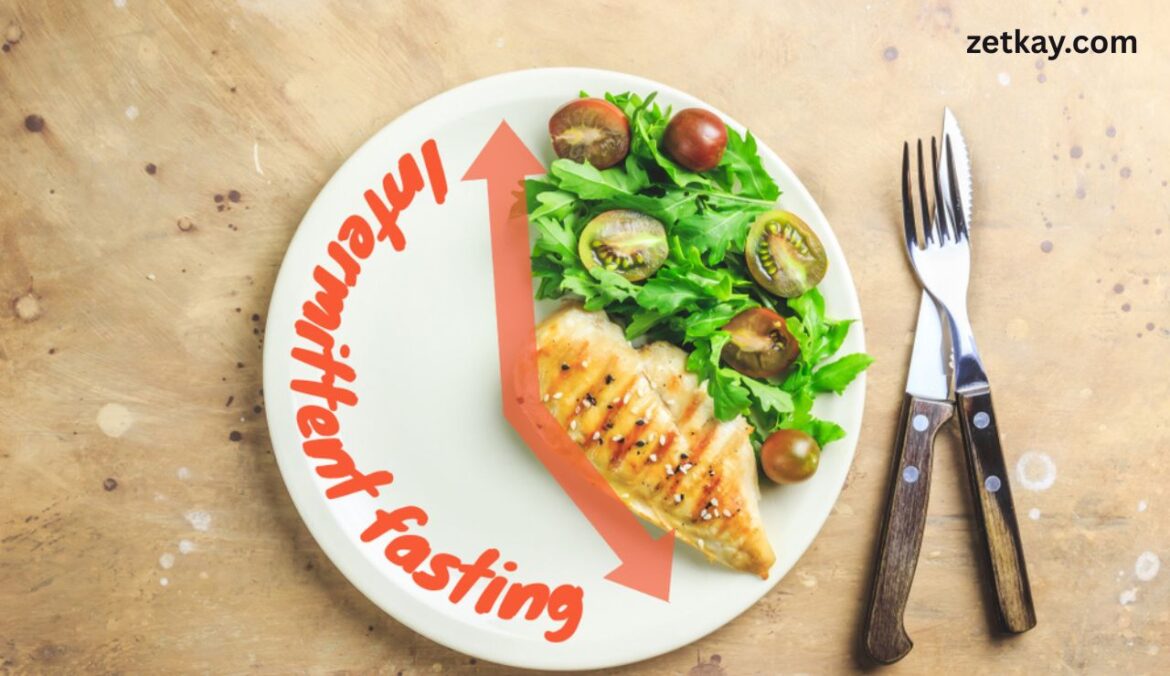Wondering if intermittent fasting is making your IBS worse? Learn how fasting affects your gut, common IBS symptoms, and tips to manage your eating schedule without causing more stomach problems. Easy-to-understand guide.
Many people are trying intermittent fasting to lose weight or feel better. But if you have IBS (Irritable Bowel Syndrome), this way of eating might make your stomach problems worse. Let’s look at how fasting and IBS work together and if it’s really the best choice for your health.
What is Intermittent Fasting?
Intermittent fasting means you only eat during certain hours and fast (don’t eat) the rest of the time. You are not told what to eat, just when to eat. Some people skip breakfast and eat later in the day. Others only eat one meal a day.
Different Types of Intermittent Fasting
There are many ways to do intermittent fasting. The 16:8 method means you fast for 16 hours and eat during 8 hours. The 5:2 plan means you eat normally for 5 days and eat very little on 2 days. Some people fast for 24 hours once or twice a week. Another way is OMAD, which means you eat one meal a day.
Why Do People Try Intermittent Fasting?
People try intermittent fasting to lose weight, control blood sugar, or feel more focused. Some think it helps their digestion. But if you have a sensitive stomach, fasting can sometimes make things worse.
What is IBS (Irritable Bowel Syndrome)?
IBS is a condition that causes stomach pain, gas, bloating, and changes in how often you go to the bathroom. Some people with IBS get diarrhea, some get constipation, and some get both.

Symptoms of IBS
Common signs of IBS are stomach cramps, bloating, feeling gassy, and needing to use the bathroom suddenly or not at all. These problems can happen often and make life hard.
Read More:
How to Use Castor Oil on Face
How To Use Black Seed Oil
What Causes IBS?
Doctors don’t know exactly what causes IBS. It may be due to stress, bad eating habits, or how the brain and gut work together. IBS can be triggered by certain foods, emotions, or changes in routine.
Things That Make IBS Worse
Some foods like dairy, beans, or fried food can cause IBS problems. Stress, not sleeping well, and skipping meals can also make symptoms worse.
How Intermittent Fasting Affects Digestion
Your stomach works best when you eat at regular times. When you change your eating schedule, your gut can get confused. This may lead to pain or bloating for people with IBS.
The Gut Has a Clock Too
Your body has an inner clock, and so does your gut. If you eat at strange times or skip meals, it can mess with your gut clock. This may lead to stomach pain or gas.
Skipping Meals Can Be a Problem
When you skip meals, your stomach still makes acid and tries to work. This can cause cramps or make you feel hungry and weak. For people with IBS, this can be very uncomfortable.
Fasting May Change Gut Bacteria
Your stomach has good bacteria that help with digestion. Long fasting may change these bacteria in a bad way, which can make IBS worse for some people.
Can Fasting Make IBS Symptoms Worse?
For some people, yes. Long gaps between meals can cause stomach pain, gas, or diarrhea. If you eat a big meal after fasting, your stomach may not handle it well. This can lead to IBS flare-ups.
Fasting Can Raise Stress
Fasting is not always easy. It can make you feel tired, moody, or stressed. Stress is a big trigger for IBS, so fasting may add to the problem.
Dehydration Can Happen
People often forget to drink enough water while fasting. If you get dehydrated, it can lead to constipation, which is a big problem for people with IBS.
Different Types of IBS React Differently
Not everyone with IBS feels the same. There are three types of IBS, and each reacts to fasting in its own way.
IBS-D (Mostly Diarrhea)
If you often have diarrhea, fasting might help a little by giving your gut a break. But when you eat again, eating too much can cause problems.
IBS-C (Mostly Constipation)
If you mostly have constipation, fasting may make things worse. Long breaks between meals slow down your gut, making it harder to go to the bathroom.
IBS-M (Mixed Type)
People with both diarrhea and constipation may have a hard time with fasting. The irregular eating pattern may confuse the stomach even more.
What Do Studies Say?
There are not many studies about intermittent fasting and IBS. Some small studies say it might help reduce bloating. Others show it can make symptoms worse. Everyone’s body is different, so results vary.
Fasting Is Not the Same for Everyone
Fasting may work well for one person but not for another. The best way to know is to try it slowly and watch how your body reacts. If your IBS gets worse, stop fasting.
Watch for These Warning Signs
Fasting is not for you if you feel more bloated, have more pain, or go to the bathroom too much or too little. If you feel tired, dizzy, or sad, your body may be telling you to stop.
Better Options for People with IBS
If fasting is not helping, try other ways to feel better. Eating small meals more often can be gentler on your stomach. The Low FODMAP diet removes foods that cause gas and bloating. Also, try to eat slowly and relax while eating.
If You Still Want to Try Fasting
Start with a short fast like 12 hours, not more. Drink water and avoid foods that trigger your IBS. Don’t fast every day at first. Give your body time to adjust and track your symptoms.
When to Talk to a Doctor
If your IBS gets worse or you lose too much weight, it’s time to see a doctor. A dietitian or stomach specialist can help you make a plan that works for you.
Conclusion
Intermittent fasting is popular, but it’s not right for everyone especially if you have IBS. Some people feel better, while others feel worse. The most important thing is to listen to your body. Try it slowly, pay attention to how you feel, and don’t be afraid to ask a professional for help.
FAQs
Can fasting cure IBS?
No, there is no cure for IBS. Fasting may help some people feel better, but it does not cure the condition.
Is it safe to fast with IBS?
It depends on the person. Some people feel okay, others feel worse. It’s best to ask your doctor before trying.
Which fasting method is best for IBS?
Gentle methods like 12:12 or 14:10 are easier on your stomach. Avoid skipping meals for too long.
Does fasting make constipation worse?
Yes, it can. Not eating or drinking enough water slows down the gut and makes constipation worse.
Should I stop fasting if I feel bad?
Yes. If you feel worse, stop fasting. Your health and comfort are more important than any diet trend.
